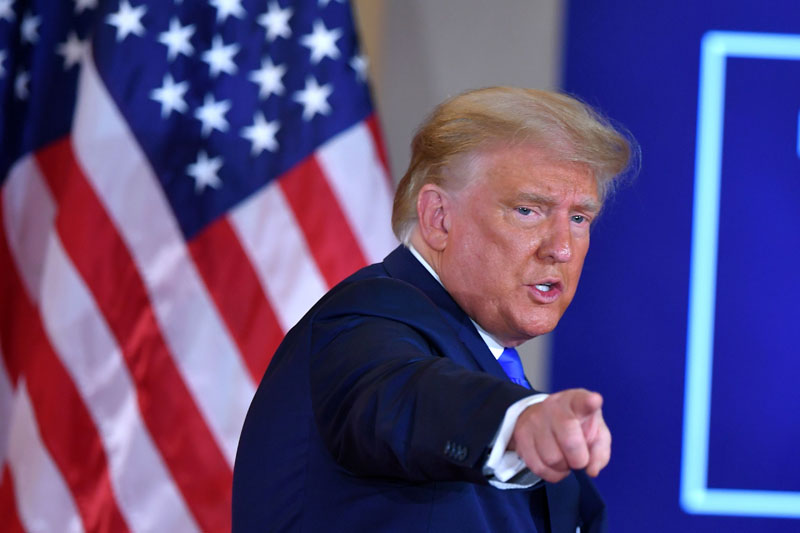
WASHINGTON: Two months before he is due to leave office, US President Donald Trump asked top aides about the possibility of striking Iran's nuclear facilities, The New York Times reported Monday. During a meeting at the Oval Office last Thursday, the outgoing Republican leader asked several top aides, including Vice President Mike Pence, Secretary of State Mike Pompeo and the chairman of the Joint Chiefs, General Mark Milley, "whether he had options to take action against Iran's main nuclear site in the coming weeks", the newspaper said.
The senior officials "dissuaded the president from moving ahead with a military strike", warning him that such an attack could escalate into a broader conflict in the last weeks of his presidency, the Times wrote. "He asked for options. They gave him the scenarios and he ultimately decided not to go forward," a US official said.
Iranian government spokesman Ali Rabiei said any military action would be met with a crushing response, but added that he personally found it unlikely Washington would want to create instability. "Our summarized response has always been that any action against the people of Iran will be met with a crushing response," Rabiei told a news conference yesterday. He said his "personal opinion, not that of the government spokesman" was that "there might be attempts" but he did not expect "that they would want to bring insecurity to the world and region".
Alireza Miryousefi, spokesman for Iran's mission to the United Nations in New York, said Iran's nuclear program is purely for peaceful purposes and civilian use and Trump's policies have not changed that. "However, Iran has proven to be capable of using its legitimate military might to prevent or respond to any melancholy adventure from any aggressor," he added.
Trump reportedly asked his aides for options after a report by the International Atomic Energy Agency (IAEA) said that Iran was continuing to stockpile low enriched uranium above the limits set by a 2015 agreement with major powers that Trump has since abandoned. According to the Times, the most likely target of such a strike would have been the country's main nuclear fuel plant at Natanz in central Iran. Iran's 2.4 ton stock of low-enriched uranium is now far above the deal's 202.8 kg limit. It produced 337.5 kg in the quarter, less than the more than 500 kg recorded in the previous two quarters by the IAEA.
Trump's withdrawal from the nuclear agreement in 2018 was followed by the unilateral reimposition of crippling economic sanctions which prompted Iran to suspend some of its obligations under the deal. European governments who have battled to keep the accord afloat have been buoyed by the projected victory of Democrat Joe Biden in the US presidential election two weeks ago, which has raised the prospect of a renewed diplomatic approach from the White House.
But the Trump administration, which has yet to concede defeat, has pledged to step up its punitive policy in what some analysts see as an attempt to build a "wall of sanctions" that a Biden administration would find difficult to dismantle after it takes office in January. Biden's transition team, which has not had access to national security intelligence due to the Trump administration's refusal to begin the transition, declined comment. - Agencies

